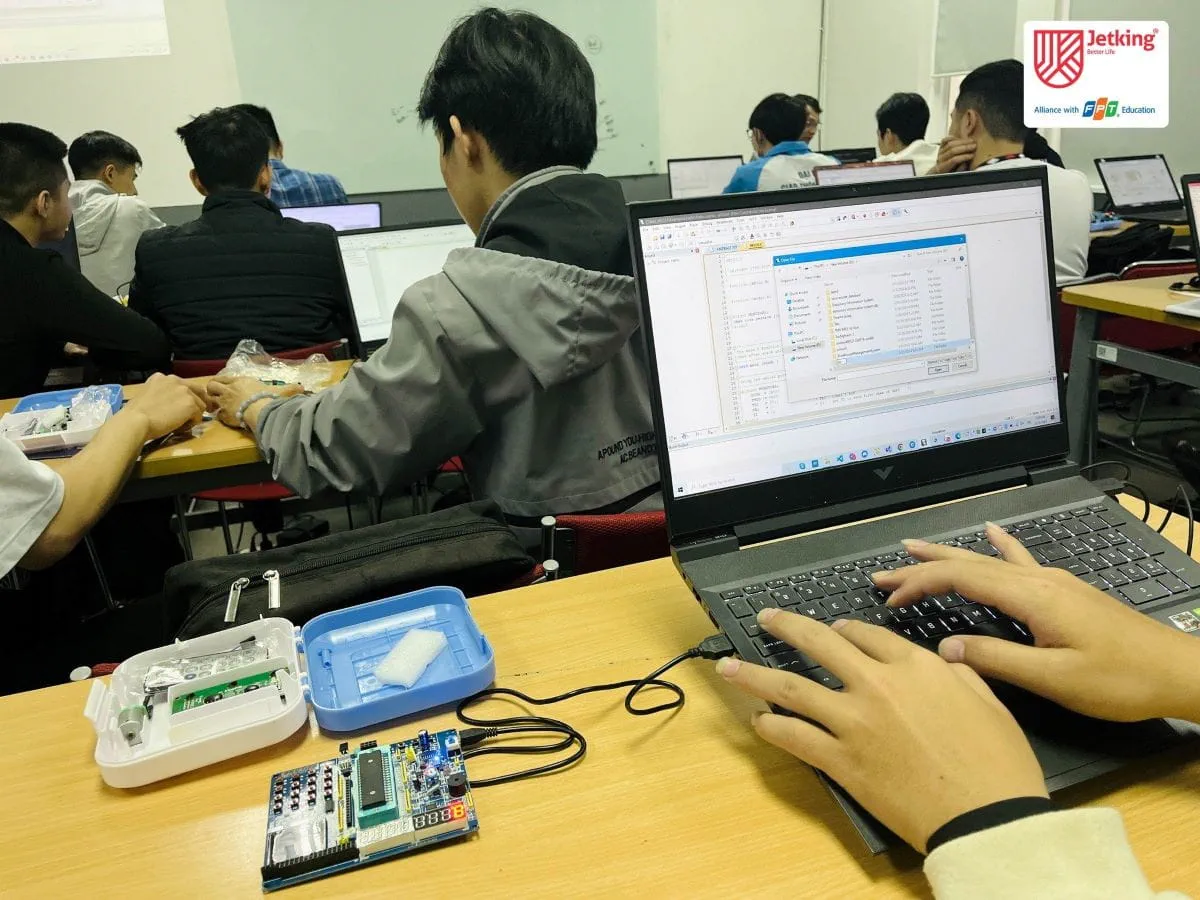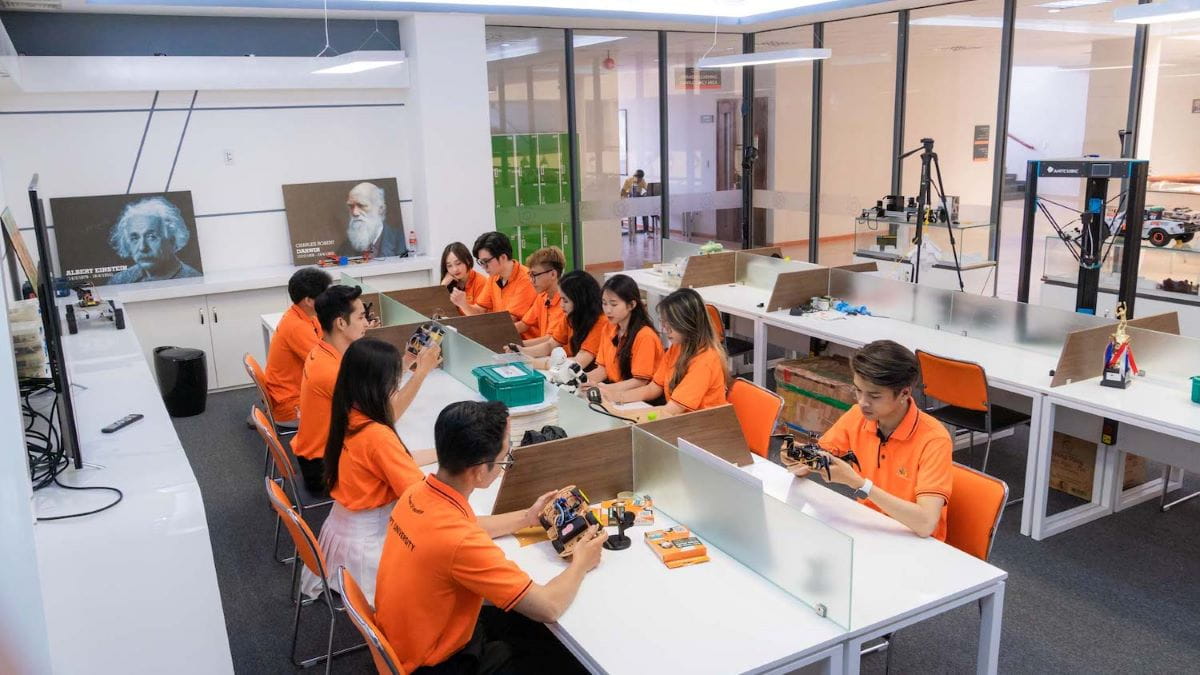Semiconductor: A 'Career for the Future' with High Salaries and Excellent Benefits
•
26/07/2024
Personnel in Vietnam's semiconductor industry have the opportunity to secure high-income jobs, with new graduates earning nearly 1,000 USD per month.
As businesses globally accelerate digital transformation and expand device ecosystems, the production of integrated semiconductor microchips has become essential to technological and industrial advancement. According to the Southeast Asia Semiconductor Industry Association (SEMI SEA), Vietnam's semiconductor market is projected to grow by over 6% from 2022 to 2027. Globally, the semiconductor market is expected to expand by 13.1% in 2024, reaching a record 588.36 billion USD, and is forecasted to grow to 990 billion USD by 2030, as reported by the World Semiconductor Trade Statistics (WSTS).
The expansive growth of the semiconductor market has led to a significant surge in demand for human resources. According to WSTS, by 2030, approximately 1 million workers will be needed across all stages of chip design, production, assembly, packaging, and testing. In the coming years, the semiconductor industry in the US is projected to face a shortage of 70,000 to 90,000 workers. Similarly, the Japanese Semiconductor Industry Association forecasts an annual shortfall of around 1,000 high-quality professionals over the next decade, exacerbated by the increasing demand for skilled workers to build and operate semiconductor factories in Japan.

Personnel in Vietnam's semiconductor industry have the opportunity to secure high-income jobs, with new graduates earning nearly 1,000 USD per month.
At the conference on Developing High-Quality Human Resources in the Semiconductor Industry, organized by the Ministry of Education and Training, economic experts forecast that Vietnam's semiconductor industry will need approximately 20,000 skilled workers in the next five years. Over the next decade, the demand will rise to 50,000 individuals with university degrees or higher. Currently, the workforce in IC design stands at around 5,000 professionals.
On various recruitment websites, the Semiconductor Engineer position with over five years of experience is offered a salary exceeding 1,000 USD per month. Neweb Vietnam Co., Ltd., a Taiwanese-invested company located in Duy Tien Industrial Park, Ha Nam, is currently hiring for Semiconductor Engineer positions with a similar salary range.
In the US, the average monthly salary for a semiconductor engineer is approximately 8,500 USD. In contrast, Japanese chip manufacturer Tokyo Electron offers nearly 305,000 yen (about 2,200 USD) monthly for new graduates starting their careers.
In Taiwan, semiconductor engineers with bachelor's degrees start with a monthly salary of approximately 38,000-42,000 NT dollars (25-33 million VND). Those with a master's degree earn between 33-37 million VND, while individuals with a doctorate receive between 46-55 million VND monthly.
According to data from the Vietnam Microchip community, the average after-tax salary for a chip design engineer in their first year of work is nearly 220 million VND annually (over 18 million VND per month). This salary increases progressively each year. With five years of experience, the annual income exceeds 330 million VND; with 15-20 years of experience, it can reach over 800 million to 1.3 billion VND annually.
In the past two years, Vietnam has emerged as a critical destination for the semiconductor industry, attracting substantial investment from American and Korean companies. Amkor Technology, the world's largest semiconductor company based in Arizona, has opened a factory in Bac Ninh with an investment of 1.6 billion USD. Similarly, Samsung plans to produce semiconductor components in Vietnam, and Hana Micron Vina (Korea) has launched a semiconductor factory in Bac Giang with a nearly 600 million USD investment.

Students majoring in Integrated Circuit Design at FPT University can receive scholarships covering up to 100% of their tuition fees.
Vietnam is increasingly becoming a critical recruitment destination for countries seeking semiconductor industry talent. In May 2024, a delegation of 19 Taiwanese businesses and universities visited Vietnam to interview students for graduate programs and internships, receiving substantial support throughout the process.
Simultaneously, numerous universities and institutions in Vietnam have launched specialized semiconductor programs or conversion courses for related fields. FPT University is recruiting 1,000 students for its IC Design major, offering up to 100% scholarships for all applicants. Similarly, Hanoi University of Science and Technology, VNU-HN, VNU-HCM, Da Nang University, Can Tho University, Phenikaa University, and others have introduced new majors and attractive incentives to draw students into the semiconductor field.
Regarding the long-term strategy for semiconductor industry personnel, a representative from FPT Corporation emphasized that job opportunities are abundant both within Vietnam and internationally, including in the US, Japan, and Korea. The challenge is enhancing the quality of training to meet the industry's stringent demands. This will enable Vietnamese professionals to secure positions not only with local companies like FPT but also with international firms operating in Vietnam. Moreover, it opens up opportunities for Vietnamese talent to work abroad in countries such as Japan, Korea, and the US.
"25 years ago, when FPT embarked on its global expansion by exporting software, there were doubts about whether Vietnamese professionals could meet international standards. Today, with 1 million IT engineers in Vietnam, we are confident that the skill, dedication, and resilience of Vietnamese youth will enable us to excel in the global semiconductor industry," the representative of FPT emphasized.




